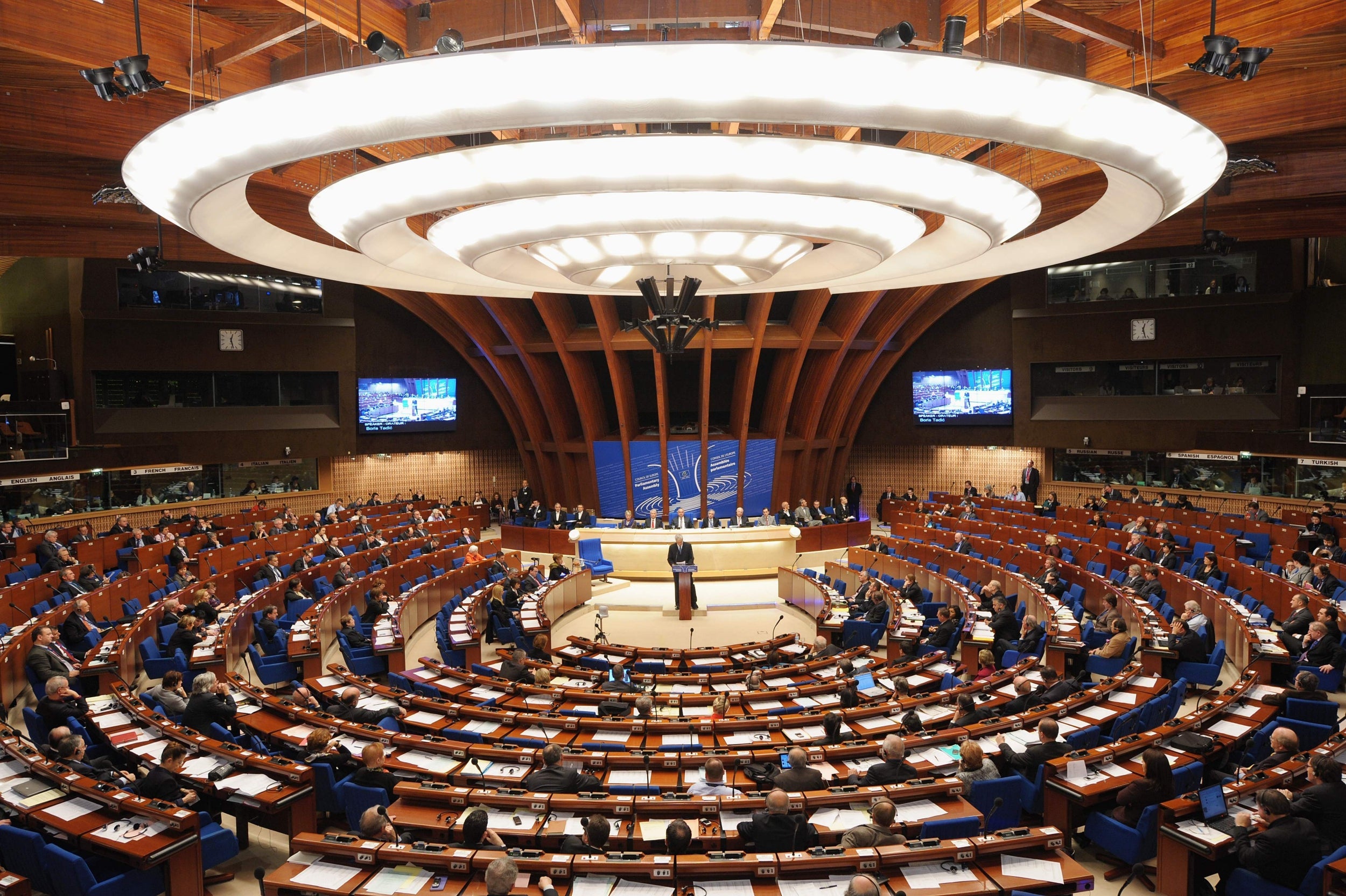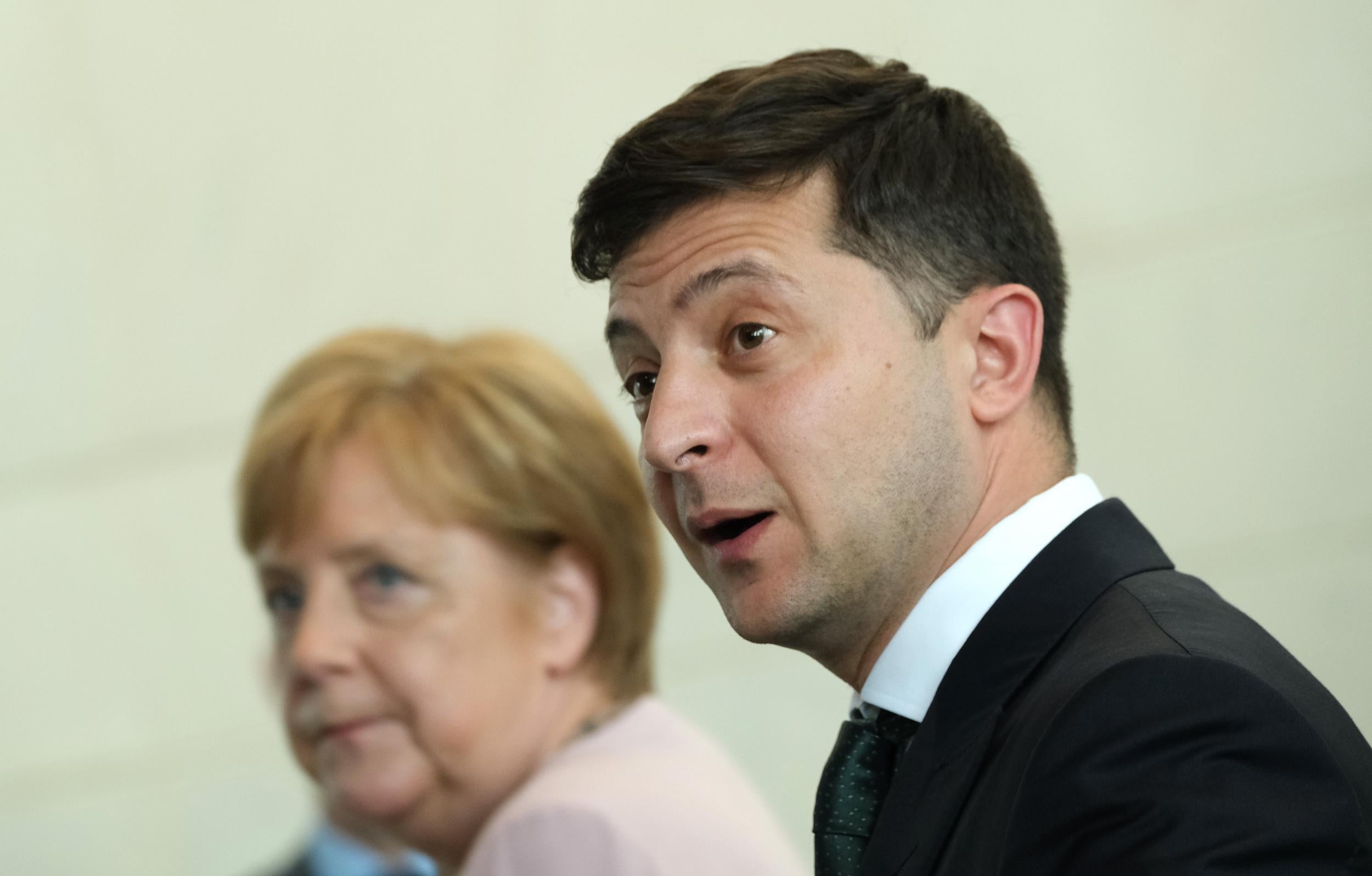Sanctions against Russia at Council of Europe lifted sparking outrage from Ukraine
Ukrainian delegation walks out in protest

Your support helps us to tell the story
From reproductive rights to climate change to Big Tech, The Independent is on the ground when the story is developing. Whether it's investigating the financials of Elon Musk's pro-Trump PAC or producing our latest documentary, 'The A Word', which shines a light on the American women fighting for reproductive rights, we know how important it is to parse out the facts from the messaging.
At such a critical moment in US history, we need reporters on the ground. Your donation allows us to keep sending journalists to speak to both sides of the story.
The Independent is trusted by Americans across the entire political spectrum. And unlike many other quality news outlets, we choose not to lock Americans out of our reporting and analysis with paywalls. We believe quality journalism should be available to everyone, paid for by those who can afford it.
Your support makes all the difference.Russian representatives will be allowed to return to the Council of Europe’s parliamentary assembly after the body voted to restore their voting rights.
Moscow was barred from the international assembly five years ago over its annexation of Crimea – and its return has provoked fury from Ukraine.
The decision, originally scheduled for 8pm on Monday, was only taken in the early hours of Tuesday after 68 speakers queued up to speak and 200 amendments were tabled. All but one minor amendment failed to pass, and Russia was readmitted by 118 votes in favour and 62 against, with 10 abstentions.
The news came less than a week after a team of investigators connected the Kremlin to the events that led to the downing of Malaysia Airlines flight MH17 over eastern Ukraine in 2014.
Russia had threatened to quit the Council of Europe’s assembly altogether if it was not allowed to vote in Wednesday’s election for a new general secretary of the body. The election is to replace Norwegian Thorbjørn Jagland, who has headed the organisation since 2009. Russia has also frozen its considerable €33m (£29.5m) annual budget payments to the Council of Europe since 2017.
Russia’s departure from the Council of Europe would have meant Russian citizens losing access to the European Court of Human Rights, which is a Council of Europe body. The ECHR has proved to be the last resort for many Russians unable to receive justice at home.
Last week, French president Emmanuel Macron, who along with German leader Angela Merkel was one of the main lobbyists for the change, said non-membership harmed Russian citizens, and not its government.
“We want to ensure [Russian citizens] have the opportunity to defend their rights,” he said.
The Council of Europe, which is based in Strasbourg, is a post-war institution entirely separate from the European Union.
The Ukranian delegation walked out of the assembly in protest at the decision. Dmytro Kuleba, Ukraine’s ambassador to the Council of Europe, had said ahead of the vote that approval of Russia “would be the unilateral surrender of the Council of Europe to Russian demands”.
Oleksiy Honcharenko, one of the 12 Ukrainian delegates to the assembly, compared the move to the appeasement of Nazi Germany in Munich in 1938.
Mr Honcharenko was one of several politicians aligned with the previous regime to criticise the current president, Volodymyr Zelensky, as the controversy took on a domestic angle. Former President Petro Poroshenko also issued a thinly-veiled broadside by describing the Council's decision as the "first serious diplomatic blow for (modern) Ukraine."
Mr Zelensky on his part expressed “disappointment” after the vote. In a post on Facebook, he said he had tried to convince Mr Macron and Mrs Merkel to allow the return of the Russian delegation to PACE only after Russia fulfils the assembly’s main demands. “It’s a pity that our European partners did not listen to us,” he said.
The Kremlin, on the other hand, welcomed the news.

"This is a very positive thing," Dmitry Peskov, spokesperson for Vladimir Putin told reporters on a conference call on Tuesday. "We can only be positive about it."
"This is not a diplomatic victory for Moscow but for common sense. Parliament assembly can't work without the contribution of Russian delegation."
Provocatively, the Russian government immediately nominated Leonid Slutsky, chairman of the Duma's foreign affairs committee, to be vice chair of the parliamentary assembly. Mr Slutsky is still included in EU sanctions brought in response to the Russian annexation of Crimea.
While delegates from France and Germany were almost unanimously in favour of lifting sanctions, the United Kingdom sided with Ukraine and the Russian-sceptic countries of eastern Europe.
Speaking in the House of Commons ahead of the vote, Theresa May said: "There has been this difference in the position of Russia in the Council of Europe.
"They have not been paying their contributions to the Council of Europe, but there is an issue that their membership of that body is one of the few ways available to the international community to hold Russia to account for its human rights violations."
Join our commenting forum
Join thought-provoking conversations, follow other Independent readers and see their replies
Comments